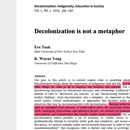I think back to when I was younger, and I remember a phrase a teacher would always tell me in school: “calladita, te ves más bonita,” which literally translated to “you look prettier when you shut up.” Even more disturbing than the meaning of the phrase is when she would say it to me. Every time I tried to tell her about the times this boy in my class would hit me or throw things at me, she would repeat it or would tell me that was his way of showing affection. I eventually left that school but never really thought about telling anyone else because it seemed normal that a boy would do that.
About a year ago, my sister and I were heading back home after a long weekend in a town near home and as we were walking from the hotel to the nearest restaurant to get some breakfast, some guys pulled up next to us and starting yelling out their cars about the things they’d like to do to us and how and where. At that point, we ignored it because that’s what you do and so we carried on. As we tried to walk faster to get away from them we realized all of the people around us started moving faster too but in the opposite direction. All of those people around us made sure that they could not get involved, they made sure to keep on walking and look away from the problem at hand. Finally, we reached the restaurant and upon reflecting on that past incident, I felt ashamed. I felt ashamed because I thought I had done something wrong or maybe I shouldn’t have dressed the way I did at that time of day. My sister and I ate in silence and never spoke of it again because that’s just what you do.
About a three weeks ago, my friends and I were out having a fun girl’s night in the city. To head out of campus we had to walk about half a mile next to a highly traveled road to get to the nearest metro station. It was about five or six at night and the sun was beginning to come down, I remember thinking about changing clothes in fear of how others might perceive my skirt at night. As we reached the station, some guy yelled something about our legs and like the other men, after saying what he had to say so urgently, he just kept on driving. My friends and I looked at each other and we kept on walking. After that, I again felt ashamed of wearing what I was wearing at that time of day and thought the incident had occurred because of something I had done.
Those three examples are just a few on my long list. Think about the number of times something like that has ever happened to you? Think about the number of times you have had anything like this happen to you at work, at school, on the way to school, while just out in the city.
I might not know your circumstances but I know none of those incidents happened because of something you did. You are free of guilt from those instances but society is not. Society has long built itself on the idea that sexual assault and violence against women is something normal and women should not feel offended or harassed because 1) it should be taken as a compliment, and 2) it is an indication that women need a sense of humor.
What’s even harder to grasp is how the legal system and school systems allow such things to happen so that the preconceived notion of power that men hold stays in place.
From a historical point of view, when colonization began in the 1500s, the conquistadores assumed they had power. As a result, a trend started to show. This trend showed that when those men assumed they had power, they not only ravaged the land of Indigenous people but also began to rape women as a way to show their strength.
Since we were young we have always been taught that boys are mean to girls because they like them. Don’t complain because we will only keep repeating those words until you internalize it.
We change our clothes and change the way we look depending on where we’re going and with whom, out of fear.
When a woman reports a sexual assault, one of the first questions she is asked is, “what were you wearing?”
The media promotes both women’s sexuality and sexual aggression from men.
Schools often ignore cases of sexual assault on campuses if the individuals involved are of high profile (i.e athletes).
The list goes on and on about how rape culture is embedded so deeply in everyday situations. So, how do we fix it?
1. Don’t be ashamed to tell others about the incidents that happen to you. They are not and will never be your fault, and being sexually assaulted should never be thought of as normal. Be sure to tell any survivors of sexual assault that it is not their fault and help them in every way possible.
2. Throw that antiquated definition of masculinity in the trash. Violent masculinity is the root cause of violence against women. STOP allowing men to become detached from emotions and reiterating that aggression is normal.
3. Learn that rapists rape, not clothing.
4. Join teams at school that educate people on campus about sexual assault and the definition of consent. No means no. Plain and simple.
5. Take action because enough is enough. Call, visit or write to your local government officials and tell them to address the problems in your community regarding sexual assault. Here is a list of all the phone numbers for every senator in the US currently in office.

